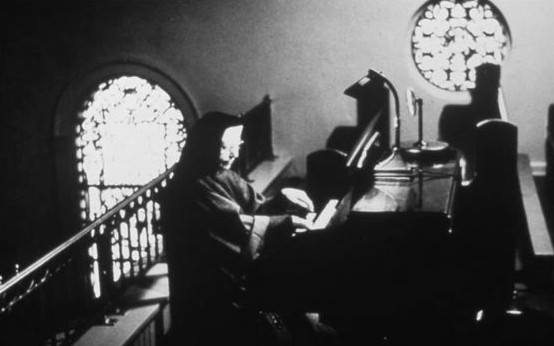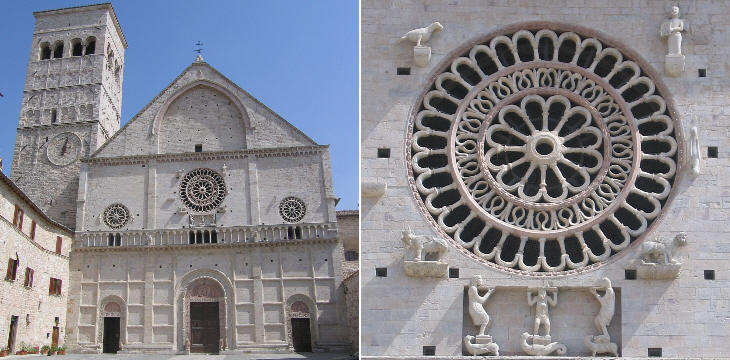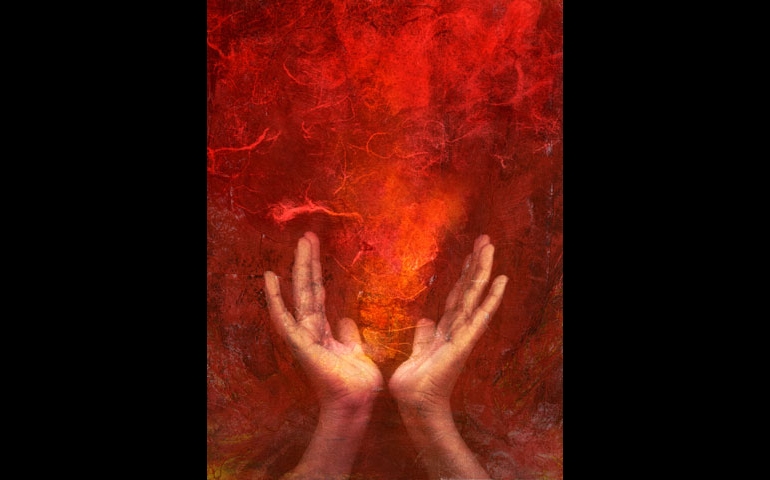
Towers
There was another also witnessing. Alberto saw Pietro making his way to the stables as he exited in the morning. Rarely sleeping, up before others, falling asleep after others, Man Tower dominated through perception and awareness. Something about the merchant bothered him greatly. The man schemed. He intended espionage through his squire. Never would Man Tower have kissed his very footprint, giving thanks to God for the existence of anything close to resembling the merchant represented. Certain men reviled him. Convinced he possessed no choice in the matter, he deployed to counter attacks, preparing for the demise of those who acutely agitated. When the merchant emerged from the stables with Ricco, he followed. Trusting his squire, he had to know what the wily shop owner was up to, such a man did nothing without motive for profit.
It was not long before Pietro was escorting Ricco into the cathedral of St Rufino. Man Tower stood outside unobservantly observing, before following into the interior. In the stealth manner he was able to attain despite his size, Alberto snuck into the cathedral, witnessing the baptism himself. It was innocent enough. He perceived the intent of the textile merchant. The shop owner was attempting to gain his favor through Ricco. Alberto trusted Ricco, fearing nothing the crafty shop owner, usual with unclean spirits, could conceive.
About to stealthy depart, the crying of the baptized baby drew Alberto’s attention. The thought struck he never witnessed a baptism before. He observed the baby as he was handed to his godparents. An iridescent aura radiated. The strangeness of ordinary things that occurred upon the unordinary battlefield struck the moment. Details became acutely apparent, time transparent to unfathomable profoundness, meanings manifested that could not be obviously stated, nor appropriately comprehended. The baby’s eyes turned toward him, closing the distance between them, a vertiginous moment soothing. Alberto found it difficult to stand, to hold his place upon his feet. Strange, foreign interior words came forth evil spirit come out of her.
Alberto, always preparing for an attack, constantly entertaining conflict, felt the need to raise defenses. Something unseen confronted. What was happening during the baptizing of the merchant’s son? Everything; perception, reality, thought, physicality, all seemed to be an illusion pointing to something greater, to almighty God, yet there was no comfort, only collusion. Unknowable knowledge became apparent. God knew this baby, through the works of all things. The palpable indefinite conviction announced eternal salvation, something set apart becoming a part. The intuition blanketed his mind, covering mental sores and wounds of the mind, smothering. Acquiescing, he settled into admiration of the beautiful baby who would become the man of God, like a grandparent admiring their first grandchild; the acceptance of aging through the exquisiteness of infancy, polar opposites uniting in authentic conception; the descent of the Holy Spirit upon the needing—to be set free and to be with Christ. He prayed for his mother, wishing she could see this baby. People, that are in the world, gathering around the baby, blocked Alberto’s vision, eliminating the moment of sublime revelation.
Making the sign of the cross with holy water, reminding him of a washing, somewhat slightly dazed, Alberto exited the cathedral. The face of the baby, its aura, etched in his mind; the eyes and perpetual smile lasting. In the clefts of the rock, in the hollow of the wall, his eyes unfocused, wandered past.
Emptied of himself, walking through Assisi, Man Tower, reposing back into demented knightly persona, sought Lord Montaninus, his former comrade in arms, hand in hand, with Barbarossa. Montaninus made arraignments to meet at a tavern near Minerva’s Temple. Alberto was to eat at the tavern. The cost would be of no concern. What was of the Lord? Following the meal, he would be led to the back of the establishment where Montaninus would be waiting. They would then venture to a castle hidden amongst the wilderness of Mount Subasio, a castle hosting an aged nobleman whispered to be insane, as well as a mystic, the word of God upon his lips, a man of worldly and spiritual extraordinariness.
An unseen female voice spoke from a table in close proximity. “That old man gives me the creeps. I don’t care what you say I am convinced he is a pervert.”
“It does not matter what he is. What has been wrong with you? For weeks now you have proven impossible, snapping at everything. The old noble provides means we could never attain. Trusting to the mercy of the almighty. You are so quick to grow angry in time of need. I worry about you. Look deeper. The old one truly asks very little of us. We know worse debauchery for less pay—only the younger ones are handsomer and hearty, yet that does not seem to bother you as much as the old one who never asks for deplorable things. Though he began to speak, you should not despise him.”
“Maybe he gives wealth, providing jewelry and gold as easy as others give promises, however we pay through the debasing we endure acquiescing to his, to his…I am not even sure what it is the old man burdens us with. Unspoken demands—that is what he procures. I cannot figure the old one out.”
“You feel him to be a burden. Those who were touched in their hearts, amazed with his deeds, tell of his goodness.”
“Yes. He is insane. How often he resorts to a juvenile nature. I cannot stand looking at his decrepit face. Determination, I cannot maintain. Sometimes, the way he speaks to us, as if we were children just learning to walk, makes me desire to scratch his eyes out. His patronizing is so demeaning. And you fall into the childish talk he so enjoys, speaking to one another as if you were children. I have to force my mind into other places, fearing his insanity will infiltrate my mind. Tainted are his ways. He must know I hate him.”
“Why would you hate him? Over the saints household, he perseveres. I feel sorry for him for being so gullible, a son…an only child to its mother. A story here, emotion espoused, a tear, and the old fool is opening his coffers. It is too easy sleeping in the lap. I even find it fun, like playing a part in the theater. There is no reason to hate him. Seriously sweetie, you just have not been yourself for some time now. The new planting of a fresh attitude you must embrace.”
“I guess…I do not know…it is too easy. I feel my soul is at stake in unknown ways. For this very reason alone, everything is wrong. One day, he will discharge his guards upon us. His chosen vineyard protected. Then we will know death and maybe he will have arraigned everything so our souls are sucked down into the depths of hell. They will say about us their efforts came to naught. We will lose our heads and suffer eternally. It is so creepy to be blindfolded en route to provide for their needs. Still, I hate it even more when he visits the city, sent down to the earth.”
“You worry too much. Please him. Open his heart to the experience of a daughter, be joined to the soul. That is all he wants from us, the pleasure to love a child, his own child. Rejoice greatly, falling at his feet. His sons are dead, the father of the poor. He has no one, for empty glory. He provides so well. A gift horse must not be examined too closely. A curse, he is not. To masquerade as a daughter is not such a horrid thing. The father of the poor, let him be. Christ made himself poor for us in this world. Let us not suffer a similar fate. We have done far worse than the old man. Heartbreaking stories, lies of sorrow, dreams unrequited, tears of tribulations; that is all we must provide in order for the sweet old one to open his treasure chest. He loves to preach the word of the Lord. Allow him his liberties.”
“I catch him, the appointed minister of a faith I hold not deeply in my heart, looking at me as no proper father observes a daughter. Do not make him out to be so innocent. Every time we call, his leering grows. I expect soon, I will have to sleep with him.”
“Again, the nasty attitude, I have slept with him. It is only sleep he demands and touched with sorrow in his heart, he dreams.”
“He does not touch you? I should have known. The old fool is impotent.”
“I do not care, or know. He holds me, meek and humble. That I do know. Lead this little one from the midst of these goats. He means no harm.”
“He must reek of old age. God, the wretchedness his breath must contain. I get sick just thinking about him. Men are wretched beast. He must snore and grind his teeth, sounding like the devil himself in sleep.”
“I must admit he does stink, yet he slumbers silently. He gives thanks to God.”
“I despise that old fool. I give thanks to God every time we depart from his abode. I love playing him for the fool he is. He makes bold in his claim to be the man of God, yet I offer no solace for his intent.”
“Oh stop. You are wicked Beatrice my child. I know, I was touched in his heart. He gave thanks to God, the last time you allowed him to kiss you goodbye.”
The two young ladies burst into laughter. Seated behind the women, a partition between them, Alberto, continually on guard, listened to the conversation. He assumed the two were prostitutes. The crowd in the tavern was thin. It was early. The majority of Assisi slept late, recovering from the excess of the festival. He nibbled upon bread, slowly sipping his wine, allowing his meal of lamp stew to settle as he waited. There was no sign of Montaninus. The tavern worker, a man previously speaking of Ricco’s deed of killing the bull with some morning drinkers, approached.
Whispering, he spoke, barely missing a step as he passed. “My lord you are requested in the back.”









Recent Comments